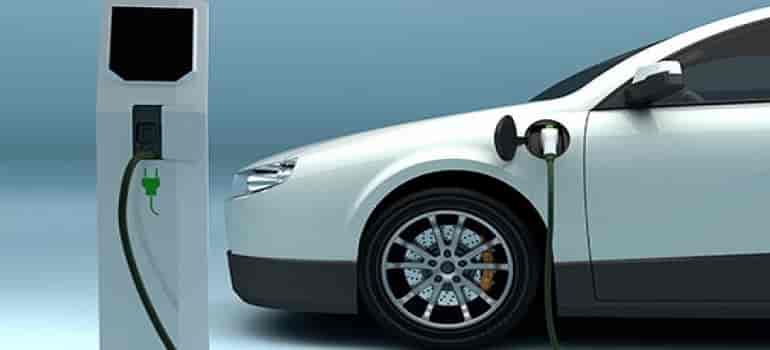 The infrastructure development of Electrical Vehicles (EVs) has become the need of the hour even though being at a nascent stage. Global companies are expressing immense interest in this space. In this regard, IESA and ICAT are jointly organizing two days EV conclave on 17th & 18th May 2018 which will address EV policy, battery technology, charging infrastructure and future EV roadmap for India.
The infrastructure development of Electrical Vehicles (EVs) has become the need of the hour even though being at a nascent stage. Global companies are expressing immense interest in this space. In this regard, IESA and ICAT are jointly organizing two days EV conclave on 17th & 18th May 2018 which will address EV policy, battery technology, charging infrastructure and future EV roadmap for India.
It also covers two focused workshops on Lead Acid and Li-Ion and an informative battery lab visit to study battery testing infrastructure and how it is being used to ensure quality and safety of vehicles.
Key highlights:-
- 90+ EV Manufacturers and 30+ Battery Manufacturers
- New Product Launch and EV & Battery Exhibition
- Special focus on E-Rickshaw E-Rickshaw and Charging Infrastructure
- 40+ Policy Makers and Industry stalwarts as Speakers
Eminent speakers of the conclave include R. Gopalan, International Advanced Research Centre for Powder Metallurgy & New Materials (ARCI); Manuj Khurana, Invest India, DIPP, Ministry of Commerce & Industry, Govt. of India; C K Goyal, Delhi Integrated Multi Modal Transit System Ltd (DIMMTS); C. Robert Pedraza, Enerblu; Anil Chutani, ACME Cleantech Solutions; Suhas Joshi, Exicom; Saurabh Rohilla, Society of Indian Automobile Manufacturers (SIAM); Amit Bhatt, Integrated Urban Transport- WRI India; Joy Nandi, Independent consultant- EVs; Ankit Maheshwari, Fortum; Madhusudhan Joshi, ICAT; Rajarshi Sen and Shyam Ragupathy from Customized Energy Solutions Pvt. Ltd & IESA.
Delta being the lead sponsor of the conclave will be showcasing its energy storage and charging station.
Dr. Madhusudan Joshi, DGM & Head Electrical and Electronics, ICAT opines, “The National Electric Mobility mission is one of the most ambitious initiative undertaken by the Government of India which can transform the automotive sector. Major players from the automotive sector have already showcased their electric vehicles which can be commercialized in near future. The whole scenario seems to be very promising with the proactive contributions from all the stakeholders, but there are still miles before wereach the final destination. To take this mission forward, ICAT continues its endeavor towards knowledge sharing and dissemination, via seminars and events, on important topics such as Power Train, EMC, HEV and EV technology, NVH, Crash, Lighting, Inspection & Certification, and Fatigue etc.”
Dr. Rahul Walawalkar, Executive Director, India Energy Storage Alliance (IESA) says, “India has a significant market potential for batteries and electric vehicles. We expect over 7 crore EV’s could be sold in India till 2030 and this would create a market of 800 GWh over the next 12 years for advanced energy storage systems. The electrification of transport sector presents a huge opportunity for cleaning up the air quality and also improve national energy security by reducing petroleum dependence. Given the domestic demand as well as export potential, India has a growing opportunity of becoming a global hub for R&D and manufacturing while achieving this transition. Energy Storage is a key component of this and there is a number of ways in which EV adoption could be transformative for the grid. In this context, we’re organizing 2nd IESA & ICAT EV conclave to bring together the key stakeholders.”
Under FAME II Proposal, The Central government plans to double the mandatory local content in EVs to 70% in three years and impose heavy duties on imports to ensure that domestic manufacturing gets a big boost from the Rs 8,730-crore proposal. At present, local content in EVs is at about 35% as most of the companies import batteries that account for a major cost of electric vehicles. This will create a space for Indian companies to enter Li-Ion cell manufacturing, Pack assembling and Power electronics development in India.
ALSO READ:
BMW Concept iX3 electric car unveiled at Auto China 2018
Electra Meccanica Releases Sneak Peek of 2019 SOLO
ABB debuts world’s fastest electric vehicle charger at Hannover Messe


